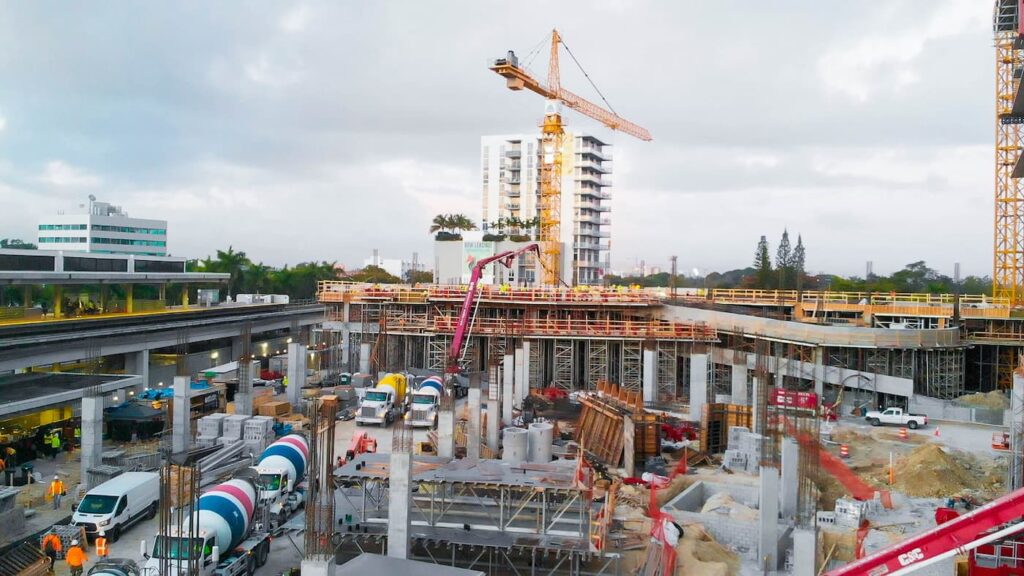As the construction industry expands, so do the demands for efficiency and innovation. Now effective time management is not only a best practice. It is non-negotiable to succeed in construction. The deadlines are becoming tighter while labor availability fluctuates. There is a constant need to optimize resources, and proper time management is crucial if anyone is looking to succeed in any construction project.
Managing it wrongly can bring costly delays, increased labor costs, and, last but not least, frustrated clients, something surely you don’t want. Let’s analyze deeper why time management in construction is so essential, explore common challenges, and identify different strategies to keep your projects on track and your clients happy.
1. What is Time Management in Construction?
Time management in construction focuses on planning and executing the project’s timeline. Its main goal is to make sure that every task is completed within the expected time. It involves not only setting deadlines but also the systematic acquisition and allocation of resources while continuously monitoring the progress to ensure that the project plan is strictly followed.
Get your projects up and running like clockwork with contractor-specific tools and proven time management methods. Many project managers rely on some construction management software to streamline workflows, track progress in real-time, and make adjustments whenever it is needed. This software often includes different kinds of features such as Gantt charts, critical path analysis, and real-time data sharing. This helps teams stay organized and on track.
In addition to technology, time management in construction involves the cultivation of a strong team dynamic. Thanks to this, everyone understands their roles and responsibilities. When project managers communicate expectations clearly, teams can work more efficiently while reducing the risk of delays.
2. Why Do You Need Construction Time Management?
Time is money in construction. If you are not managing it, you’re bleeding it. Let’s look at the critical factors:
- Cost Control: One of the main areas for improvement for the construction industry is sticking to the budget. Delays can lead to increased labor costs, as workers may need to be employed longer than originally planned. Accurate time management and monitoring can help control these costs by ensuring that the project stays on schedule.
- Client Satisfaction: Meeting the client’s deadlines is the backbone for establishing great trust and gaining their satisfaction. On-time project delivery drives repeat business and can help make your reputation rock solid.
- Resource Optimization: Efficient time management allows for a better use of materials and human resources, reducing waste. When projects are organized and run smoothly, materials are used more effectively and are always delivered on time for their use, and labor is allocated where it is needed most.
- Competitive Advantage: In a highly competitive market, companies known for completing projects on time tend to stand out. Good time management practices can differentiate a construction firm from its competitors.
- Stress Reduction: Projects that are managed effectively reduce stress for project managers and the workforce, as they feel that everyone is rowing for the same objective more calmly. This reduces anxiety and uncertainty and lets workers focus on their tasks.
- Regulatory Compliance: Effective time management helps in being aware and prepared, taking all the necessary steps, and having them completed on time for the regulatory requirements and possible inspections.
3. Common Time Management Challenges
Despite the clear benefits, managing time effectively in construction can be challenging if any of the following factors happen, so stay tuned!
- Unforeseen Delays: Weather, supplies, labor shortages. Expect the unexpected. If you’re not ready, your schedule is useless.
- Inadequate Planning: Without a robust project schedule, tasks can overlap. This lack of foresight can create bottlenecks that hinder progress.
- Resource Limitations: The availability of skilled labor can fluctuate, affecting project timelines. Understanding how to schedule and allocate resources effectively is essential for staying on track.
- Technological Resistance: Some team members may resist adopting new technologies or processes that may facilitate better time management. To overcome this barrier, training and demonstrating the benefits of these tools is a great way.
- Cultural Differences: In projects with diverse teams, cultural differences can affect communication and expectations regarding time management. Besides, as time goes by, this challenge is becoming greater.
4. Benefits of Proper Time Management
Cut through delays and boost your productivity with these smarter time management strategies:
- Increased Productivity: When your time is managed right, everyone gets to work, and there are no wasted moves.
- Improved Quality of Work: Workforce productivity and efficiency improve when the time is well managed, leaving the workers to do their jobs more focused.
- Enhanced Safety: A well-structured schedule helps reduce accidents by ensuring proper sequencing of tasks. When teams understand their roles and the order of operations, safety incidents can be minimized.
- Stronger Team Morale: Working in a more efficient environment where deadlines are met boosts the team’s morale. Workers feel a sense of accomplishment and pride in their contributions.
- Better Stakeholder Engagement: Time management also improves the relationship of the stakeholders, as their money is traduced into time, so being able to keep an eye on the projects and visualizing the progress creates a stronger bond.
- Long-Term Relationships: Successive, well-managed projects leave the clients not only satisfied but also wanting to keep collaborating. Time is the most important asset in every company, so it’s in everyone’s mind trying to make the most of it.
- Continuous Improvement: Having great time management and monitoring lets companies analyze their different projects in order to find the missing pieces or the areas for improvement. This analysis can lead to more effective planning and execution in future projects.
Take Back Control of Your Time Keeping
5. Construction Time Management Strategies
To overcome the challenges associated with time management in construction, you should consider the following strategies:
- Develop a Project Schedule: At the beginning of the project, before starting with any manual work, create a detailed timeline that includes all tasks, deadlines, and people responsible for each part of the project. Use Gantt charts and advanced scheduling tools to visualize tasks and dodge costly bottlenecks. No excuses.
- Prioritize Tasks: Identify critical tasks that impact the project schedule and allocate resources accordingly. For example, a priority matrix can be implemented. This can help teams focus on high-impact activities first and, after them, work on the secondary tasks.
- Enhance Communication: Open communication among construction managers, workers, and stakeholders is a key point. Regular meetings, project updates, and collaborative tools are essential for everyone to be aligned on goals and timelines.
- Conduct Regular Reviews: Schedule periodic reviews of the project’s progress to identify areas where time management can be improved. These reviews should include feedback from all team members, as different perspectives can highlight unseen issues. Besides, this way, you can also get information about how the workers feel.
- Utilize Technology: Implement modern tools that facilitate scheduling, task management, and communication, such as cloud-based solutions. These tools allow teams to access project information from anywhere and anytime, making everyone stay informed.
- Training and Development: Invest in training for your construction teams to improve their time management skills. Workshops and courses are ideas that can provide valuable insights and techniques for managing time more effectively.
- Risk Assessment and Mitigation: Regularly evaluate potential risks that could disrupt the project timeline. Developing contingency plans for addressing these risks can help to minimize their impact if they occur.
- Leverage Data Analytics: Analyze historical project data to identify patterns and trends that can inform better planning. Data analytics can reveal which tasks typically cause delays and allow project managers to make adjustments for future projects.
6. How to Improve Time Management in Construction
Improving time management in construction requires ongoing effort and commitment:
- Conduct Regular Training: Your workforce must be equipped with every necessary skill and tool to manage time effectively. Regular workshops can help reinforce best practices and introduce new techniques.
- Use Technology: Having state-of-the-art tools and software can simplify scheduling and task tracking. Solutions like SmartBarrel’s biometric time tracking can help ensure accurate labor hours and prevent time theft.
- Review and Adapt: Establishing assessments regularly can help boost the project’s performance and make necessary adjustments to improve efficiency. Using performance metrics and monitoring the time spent during each step helps identify trends and areas for improvement.
- Benchmark Against Industry Standards: Comparing your project timelines with the industry standards can help you identify your weaknesses and strengths and set your new areas of improvement.
- Encourage Feedback: Getting and listening to inputs directly from the team members not only helps create an environment where they feel comfortable and respected but also improves the relationship between the workers and the project managers.
- Celebrate Milestones: Having clear milestones and celebrating them makes the work more fulfilling and reinforces the importance of deadlines and meeting them. This can also have a great boost on morale, motivating the workforce to keep this level of efficiency.
- Encourage Cross-Training: Having the workforce ready to do different tasks can help fill in for people on sick leave or during injuries. This flexibility can help maintain productivity during absences or peak workload periods.
7. SmartBarrel’s Solution
Looking for a game-changing solution? SmartBarrel’s got your back. Project managers, thanks to utilizing SmartBarrel’s technology, can:
- Monitor Attendance: Use biometric facial verification to prevent buddy punching and ensure accurate labor tracking.
- Track Labor Hours: Capture real-time labor hours to streamline payroll processes and reduce administrative overhead.
- Analyze Productivity: Access to detailed reports on labor productivity and project timelines. These can be used to make informed decisions about resource allocation and scheduling their acquisition.
- Enhance Accountability: With clear data on labor hours and project progress, project accountability is more accurate. This clarity encourages workers to adhere to their schedules and fulfill their responsibilities.
Mastering time management is non-negotiable for succeeding in construction. As has been discussed, the challenges and complexities of the construction industry can be solved by managing timelines, significantly affecting project costs and, even as important as that, affecting client satisfaction. Implementing time management practices, as has been mentioned, helps both meeting deadlines and having a positive work environment.
Utilizing innovative solutions like SmartBarrel can streamline time management processes by providing real-time data for tracking labor hours, analyzing productivity, and enhancing accountability. This technological integration enables construction firms to make informed decisions, ultimately leading to greater efficiency and project success.
In summary, prioritizing time management in construction is essential for navigating challenges and achieving project goals.






